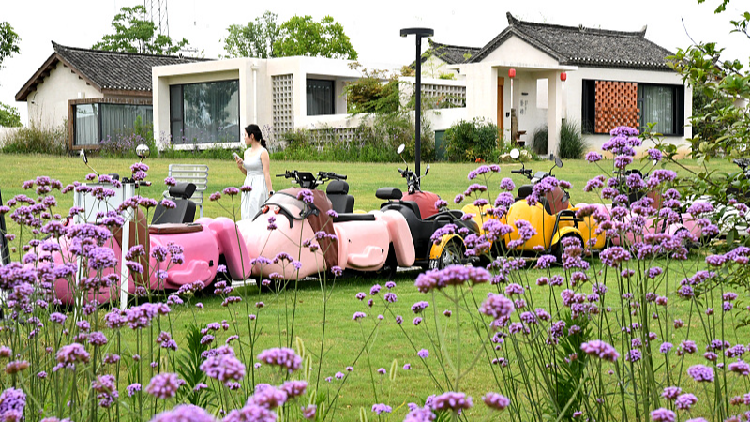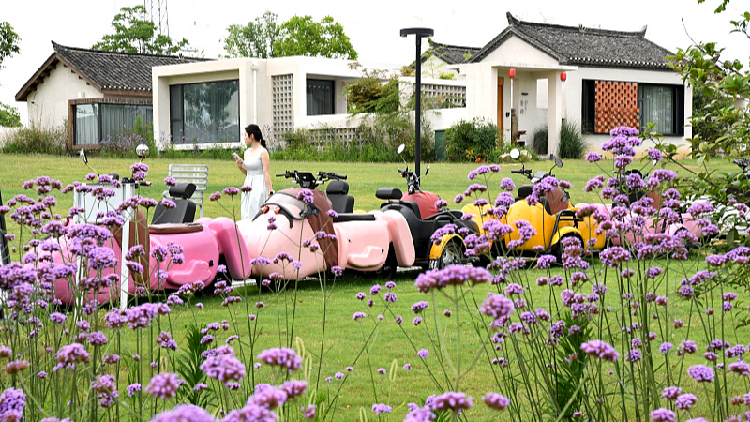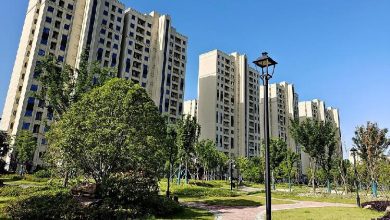Tapping into new professions: Homestay managers propel rural tourism


<img src='https://news.cgtn.com/news/2024-08-22/Tapping-into-new-professions-Homestay-managers-propel-rural-tourism-1wfC3qeomBi/img/6d37800f6b6045099401eec20df81d57/6d37800f6b6045099401eec20df81d57.png' alt='View of a homestay in Huairou District of Beijing, China, April 30, 2024. /CFP'
Editor’s note: CGTN presents “New Trends,” which explores new trends among Chinese people as well as their underlying causes. We focus on the impacts of China’s reform and opening-up, emphasizing the modernization strategies outlined by the Third Plenary Session of the 20th Central Committee of the Communist Party of China. This era of transformation, driven by new productive forces, is reshaping Chinese people’s lifestyles and daily experiences, blending tradition with innovation to redefine how they live and work.
In recent years, rapid growth in rural tourism has given rise to many new professions. Homestay managers are among these growing teams, helping tourists find the freedom of “poetry and distance” and also injecting new vitality into rural development.
Before graduating from university, Liu Huimin came to Siduhe Village in Huairou, Beijing, and became the homestay manager for the entire village.
“In the traditional perception, people just take it for granted that homestay managers play the role of waiters, responsible for tourist receiving and the room services, like washing the dishes or cleaning rooms,” Liu told China Media Group (CMG).
“However, with the market expansion and the standardization of the industry, a qualified homestay manager is expected to have a firm grasp or a high degree of competence in many fields,” Liu added.
Internationalizing rural tourism
“Walking in the village, people can see an eye-catching culture journey map in front of each homestay, with text introducing the characteristics of the house and a QR code for details, like booking information,” Liu said.
These are all new ways for Liu to come up with the operation of homestays. She also took over the operation of the village’s social media accounts to increase the popularity of the village by writing stories, shooting videos and broadcasting live in the village. Liu’s efforts have attracted more tourists to the village and also brought tangible benefits to local villagers.
“Nowadays, the role of a homestay manager is not just to provide accommodation-related services but also to become a disseminator of local culture and a lifestyle guide,” Liu noted.
<img src='https://news.cgtn.com/news/2024-08-22/Tapping-into-new-professions-Homestay-managers-propel-rural-tourism-1wfC3qeomBi/img/3f2139a8b17c47fea356ae62325afae8/3f2139a8b17c47fea356ae62325afae8.jpeg' alt='View of a homestay in Shushan District of Hefei, east China's Anhui Province, June 18, 2024. /CFP'
“With the help of the village committee, we integrated local resources to create cultural and tourism products so that guests visiting the small mountain village can have a richer experience,” she added.
Combining the local cultural characteristics, Liu and her team created some cultural and tourism projects, such as art classes, study tours and cultural and creative markets. Besides, she worked togeter with local villagers and launched multiple experience activities, including chestnut picking, stargazing and camping, which enriched the business model of homestay operations, developed a small village into a well-known landmark and even attracted many international volunteers to join the homestay operation team.
A standardized profession
Rapid job growth has reflected the prosperous development of new rural business models and has become a new force to help rural revitalization. More young people like Liu today choose to work in the countryside.
According to data from a recruitment platform, the number of homestay managers increased by 8 percent year on year in 2023.
In recent years, with the rise of the “self-entertainment economy,” many new related occupations such as homestay managers, cultural and creative product planning and operation specialists, leisure and camping site managers and coffee roasters have emerged.
In a significant development, the Ministry of Human Resources and Social Security and the Ministry of Culture and Tourism officially issued the national occupational standards for this new profession in February. Homestay managers are now divided into five-grade vocational skills, from “junior worker” to “senior technician.”
“The newly released occupational standards offer the youths a new channel for career advancement, which can greatly improve their sense of professional honor and career planning. The professionalization of homestay managers also can provide good support for the overall development of the industry,” Long Fei, deputy secretary general of China Travel Agents Association., told CMG.





